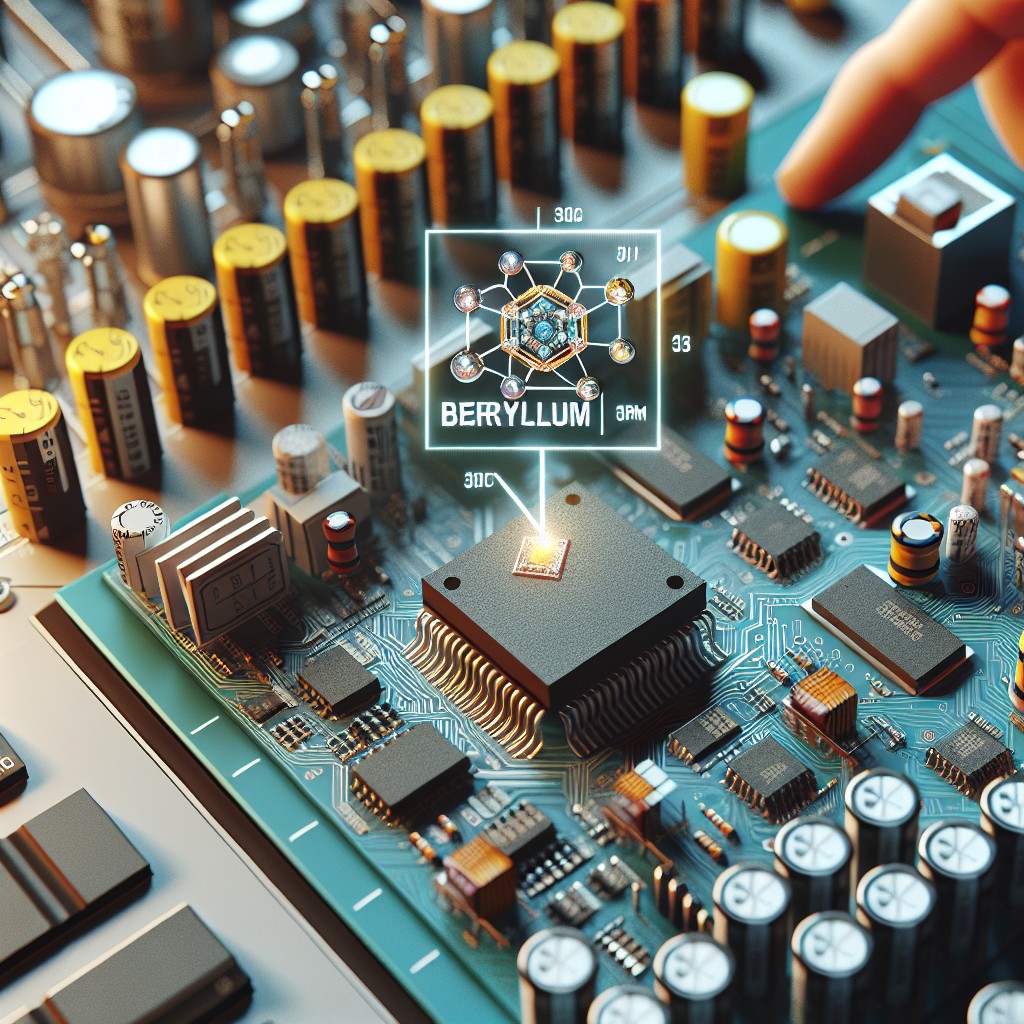Nickel is a versatile and valuable metal that is widely used in various industries due to its unique properties. It is a silvery-white metal with a high melting point and excellent corrosion resistance. Nickel is also known for its strength, ductility, and magnetic properties. These characteristics make it an ideal material for a wide range of applications.
Nickel plays a crucial role in many industries, including aerospace, automotive, construction, electronics, medical, oil and gas, and renewable energy. Its properties make it an essential component in the manufacturing of various products and materials. From aircraft engines to batteries, nickel is used in numerous applications that contribute to the advancement of modern industries.
Summary
- Nickel is a versatile metal with unique properties that make it useful in a variety of industries.
- In the aerospace industry, nickel is used in engine components and structural materials due to its strength and resistance to corrosion.
- The automotive industry relies on nickel for the production of batteries and catalytic converters, which help reduce emissions.
- In the construction industry, nickel is used in stainless steel and other alloys for its durability and resistance to corrosion.
- Nickel plays a crucial role in the electronics industry, where it is used in everything from computer chips to batteries.
The Role of Nickel in the Aerospace Industry
In the aerospace industry, nickel is primarily used in aircraft engines and components. Nickel-based superalloys are used to manufacture turbine blades, which are subjected to extreme temperatures and pressures. These alloys provide excellent strength and resistance to corrosion, allowing the engines to operate efficiently and reliably.
Nickel also plays a vital role in the manufacturing of aircraft components such as landing gear, exhaust systems, and structural parts. These components require materials with high strength and durability to withstand the harsh conditions of flight. Nickel alloys provide these properties, making them an ideal choice for aerospace applications.
The use of nickel in the aerospace industry offers several benefits. Firstly, it improves fuel efficiency by allowing engines to operate at higher temperatures without compromising performance. This leads to reduced fuel consumption and lower emissions. Secondly, nickel-based alloys provide excellent resistance to corrosion and oxidation, ensuring the longevity and reliability of aircraft components. Lastly, nickel’s high strength-to-weight ratio allows for lighter aircraft structures, resulting in improved performance and increased payload capacity.
Nickel’s Importance in the Automotive Industry
Nickel plays a crucial role in the automotive industry, particularly in the production of batteries and catalytic converters. Nickel-metal hydride (NiMH) batteries are commonly used in hybrid and electric vehicles. These batteries offer high energy density, long cycle life, and excellent performance in a wide range of temperatures. Nickel is a key component in the cathode of NiMH batteries, contributing to their superior performance and reliability.
Catalytic converters, which are essential for reducing harmful emissions from vehicles, also rely on nickel. Nickel is used as a catalyst in the converter to facilitate the conversion of harmful gases into less harmful substances. The use of nickel in catalytic converters helps to reduce air pollution and improve air quality.
The advantages of using nickel in automotive applications are significant. Firstly, nickel-based batteries offer higher energy density and longer cycle life compared to other battery technologies. This allows for longer driving ranges and improved overall performance of electric vehicles. Secondly, the use of nickel in catalytic converters contributes to cleaner exhaust emissions, helping to meet stringent environmental regulations. Lastly, nickel’s abundance and relatively low cost make it an economically viable choice for automotive manufacturers.
The Use of Nickel in the Construction Industry
| Application | Usage | Benefits |
|---|---|---|
| Stainless Steel | 60% | Corrosion resistance, durability, aesthetic appeal |
| Alloys | 20% | Strength, heat resistance, electrical conductivity |
| Plating | 10% | Decorative finish, wear resistance, corrosion protection |
| Batteries | 5% | High energy density, long life, low maintenance |
| Catalysts | 5% | Efficient chemical reactions, reduced emissions |
Nickel is widely used in the construction industry, particularly in the production of stainless steel and other construction materials. Stainless steel, which contains a significant amount of nickel, is highly resistant to corrosion and provides excellent strength and durability. It is commonly used in the construction of buildings, bridges, and infrastructure.
Nickel also plays a crucial role in the production of other construction materials such as alloys, plating, and welding electrodes. These materials provide enhanced strength, resistance to corrosion, and improved aesthetics. Nickel-based alloys are used in various applications where high strength and resistance to extreme temperatures are required.
The benefits of using nickel in construction applications are numerous. Firstly, stainless steel’s corrosion resistance ensures the longevity and durability of structures, reducing maintenance costs over time. Secondly, nickel-based alloys provide excellent strength and resistance to extreme temperatures, making them suitable for demanding construction applications. Lastly, the aesthetic appeal of nickel-plated materials adds a touch of elegance to architectural designs.
Nickel’s Role in the Electronics Industry
Nickel is widely used in the electronics industry due to its electrical conductivity and magnetic properties. It is used in the production of electronic components such as connectors, switches, and relays. Nickel-based alloys are also used in the manufacturing of electrical contacts, which require high conductivity and resistance to wear.
Nickel is also a key component in rechargeable batteries, particularly nickel-cadmium (NiCd) and nickel-metal hydride (NiMH) batteries. These batteries are commonly used in portable electronic devices such as laptops, smartphones, and power tools. Nickel’s properties contribute to the high energy density and long cycle life of these batteries.
The advantages of using nickel in electronics applications are significant. Firstly, nickel’s electrical conductivity ensures efficient transmission of electrical signals, improving the performance of electronic devices. Secondly, nickel-based alloys provide excellent resistance to wear and corrosion, ensuring the longevity and reliability of electronic components. Lastly, nickel-based batteries offer high energy density and long cycle life, providing extended usage time for portable electronic devices.
Nickel’s Versatility in the Medical Industry

Nickel plays a vital role in the medical industry, particularly in the manufacturing of medical equipment and implants. Nickel-based alloys are used in the production of surgical instruments, dental tools, and orthopedic implants. These alloys provide excellent strength, corrosion resistance, and biocompatibility.
Nickel is also used in medical imaging equipment such as MRI machines. The magnetic properties of nickel make it an ideal material for constructing components that generate and detect magnetic fields. MRI machines rely on these properties to produce detailed images of internal body structures.
The benefits of using nickel in medical applications are significant. Firstly, nickel-based alloys offer excellent strength and corrosion resistance, ensuring the durability and longevity of medical equipment and implants. Secondly, nickel’s biocompatibility makes it suitable for use in implants, reducing the risk of adverse reactions in patients. Lastly, the magnetic properties of nickel contribute to the accuracy and effectiveness of medical imaging techniques.
Nickel’s Use in the Oil and Gas Industry
Nickel plays a crucial role in the oil and gas industry, particularly in exploration and production activities. Nickel-based alloys are used in the manufacturing of equipment such as valves, pumps, and pipes that are exposed to corrosive environments. These alloys provide excellent resistance to corrosion and high temperatures, ensuring the reliability and safety of oil and gas operations.
Nickel is also used in the production of catalysts for various refining processes in the oil and gas industry. These catalysts help to improve the efficiency of refining operations and reduce environmental impact.
The advantages of using nickel in oil and gas applications are significant. Firstly, nickel-based alloys offer excellent resistance to corrosion and high temperatures, ensuring the durability and reliability of equipment in harsh environments. Secondly, nickel catalysts contribute to the efficiency and effectiveness of refining processes, reducing energy consumption and emissions. Lastly, nickel’s abundance and relatively low cost make it an economically viable choice for the oil and gas industry.
The Importance of Nickel in the Renewable Energy Industry
Nickel plays a crucial role in the renewable energy industry, particularly in technologies such as wind turbines and solar panels. Nickel-based alloys are used in the manufacturing of turbine blades for wind turbines. These alloys provide excellent strength, fatigue resistance, and corrosion resistance, allowing wind turbines to operate efficiently and reliably.
Nickel is also used in the production of solar panels. Nickel-coated copper wires are used to connect solar cells within a panel, ensuring efficient transmission of electricity. Nickel is also used as a catalyst in the production of hydrogen from water through electrolysis, which is a key process for storing renewable energy.
The benefits of using nickel in renewable energy applications are significant. Firstly, nickel-based alloys offer excellent strength and corrosion resistance, ensuring the durability and reliability of wind turbines. Secondly, nickel-coated copper wires contribute to the efficiency of solar panels, improving the conversion of sunlight into electricity. Lastly, nickel catalysts play a crucial role in the production of hydrogen, which is a clean and sustainable energy source.
The Future of Nickel in Modern Industries
The future of nickel in modern industries looks promising, with potential for increased demand in various sectors. As industries continue to advance and evolve, the demand for materials with unique properties and capabilities will grow. Nickel’s versatility and valuable properties make it an ideal choice for emerging technologies and applications.
One area where nickel is expected to play a significant role is in the development of electric vehicles (EVs). As the demand for EVs increases, so does the demand for nickel-based batteries. Nickel-rich cathodes are being developed to improve the energy density and performance of EV batteries. This trend is expected to drive the demand for nickel in the coming years.
Another area where nickel is expected to see increased demand is in the production of renewable energy technologies. As countries strive to reduce their reliance on fossil fuels and transition to cleaner energy sources, the demand for wind turbines, solar panels, and hydrogen production technologies will increase. Nickel’s properties make it an essential component in these technologies, driving the demand for nickel in the renewable energy sector.
The Enduring Importance of Nickel (Ni) in Modern Industries
In conclusion, nickel plays a vital role in modern industries due to its unique properties and versatility. Its use in various sectors such as aerospace, automotive, construction, electronics, medical, oil and gas, and renewable energy contributes to the advancement and sustainability of these industries.
Nickel’s properties make it an ideal material for a wide range of applications. Its strength, corrosion resistance, electrical conductivity, and magnetic properties make it a valuable component in the manufacturing of various products and materials. From aircraft engines to batteries, nickel is used in numerous applications that drive innovation and progress.
The future of nickel in modern industries looks promising, with potential for increased demand in emerging technologies and applications. As industries continue to evolve and strive for sustainability, the demand for materials with unique properties and capabilities will grow. Nickel’s enduring importance in modern industries is a testament to its valuable properties and its ability to contribute to the advancement of various sectors.
FAQs
What is Nickel (Ni)?
Nickel (Ni) is a chemical element with the symbol Ni and atomic number 28. It is a silvery-white lustrous metal with a slight golden tinge.
What are the properties of Nickel (Ni)?
Nickel (Ni) is a hard, ductile metal that is resistant to corrosion and oxidation. It has a high melting point and is magnetic at room temperature.
What are the uses of Nickel (Ni)?
Nickel (Ni) is used in a variety of applications, including the production of stainless steel, batteries, coins, and electronics. It is also used in the aerospace industry for its high strength and resistance to corrosion.
Is Nickel (Ni) toxic?
Nickel (Ni) can be toxic in high doses and prolonged exposure can lead to lung and nasal cancer. However, the risk of toxicity is low for most people who are exposed to nickel in everyday life.
Where is Nickel (Ni) found?
Nickel (Ni) is found in the Earth’s crust and is mined in countries such as Canada, Russia, and Australia. It is also found in meteorites and is believed to be present in the Earth’s core.
What is the history of Nickel (Ni)?
Nickel (Ni) was first discovered in 1751 by Swedish chemist Axel Fredrik Cronstedt. It was named after a mischievous sprite from German mythology called “Nickel” who was said to cause trouble for miners.


